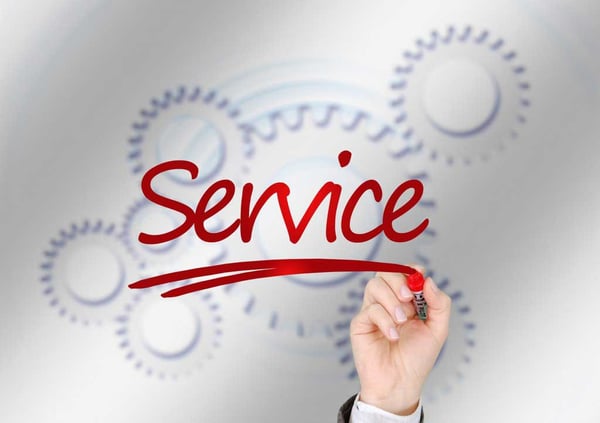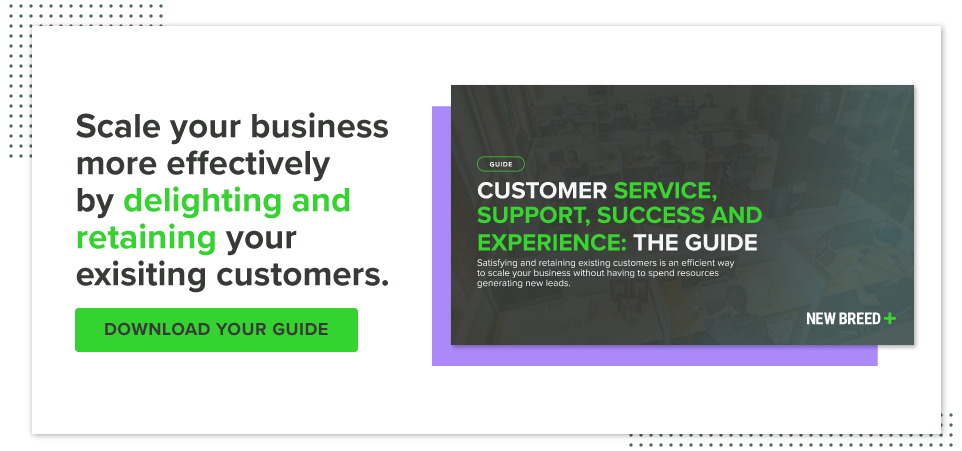 Source: Educba
Source: Educba
When we think of marketing, we often think of big-name product-based companies like Apple or Google. We think of tangible objects that we can see, touch and use for years to come. But the global services market — including IT services, management services and marketing services — is a multi-billion dollar industry, and marketing intangible products is an entirely different beast.
Unlike physical goods, which have an obvious and immediate use case, services can't be marketed in the traditional way. Software companies have the advantage of product-led growth, as free trials are a great way to let your product sell itself. But in the services industry, there's no true equivalent of a "free sample," and so you can't sell a service the same way you sell a physical product.
At the end of the day, your product is your people, knowledge and expertise. You're selling an experience with the promise of results. And that means that service marketing has much higher stakes; in the U.S., 33 percent of consumers say they’d consider switching companies after just a single instance of poor service.
So how do you convince prospects of the value of your service without tangible proof?
Service Marketing: Your Product is Your People
Service companies need to make sure that their marketing content reflects the knowledge of their people, the experience of working with them and the outcomes that they can produce. Don't focus solely on the amount of revenue growth you can provide, because realistically, your competitors could likely drive the same amount of revenue growth if they're using similar tactics. Instead, reinforce the authority of your people and give your prospects a taste of what it will be like to work with your company.
Part of that reinforcement means including human elements in all your marketing materials. For example, at New Breed, we were originally hesitant to place pictures of our employees on our website. Our company is made up of a fair amount of young people, and we didn't want prospects to feel apprehensive about our expertise due to our age — but then we realized that our demographics are one of our strengths! Our people are young, bright and innovative, and that's part of what makes the experience of working with us so appealing to many of our clients.
Sharing these human elements can be as simple as maintaining a robust, active online presence. Include a profile page on your website with fun facts about your people and their expertise, so prospects can get to know who they'll be working with before ever entering a sales conversation. Make sure your employees are active on relevant social media platforms like LinkedIn, Twitter and Facebook, depending on where your prospects spend time online.
Translating Intangible Elements Into Tangible Marketing Content
Although the service you provide cannot be tested out in the same way that a physical good can, there are ways to provide tangible, immediate value to your prospects that will convince them of your expertise. A comprehensive blog or resource library can provide educational content and build credibility for your brand.
Sprinkle in the human element by featuring real subject matter experts from your company. For example, rather than a text-based guide or a white paper, create a video guide with one of your employees discussing the topic with the same depth, patience and enthusiasm they'd use to present to a client.
Exemplify what your service can do with case studies and testimonials. Even though you can't send your prospects a free sample of your product, previous and existing clients can attest to your expertise.
Depending on the type of services you offer, the closest you might get to a free sample or a "freemium" marketing model is through free assessments or consultations. By giving prospects the chance to work with one of your employees on a small project for free, they can get a real taste of what it's like to work with your team and decide for themselves whether or not you'd be a good fit.
Follow Through to Create Brand Evangelists
Unlike product marketing, which often leads to a one-time sale, service marketing has the potential to lead to successful, long-term engagements with customers who become evangelists of your brand. Evangelists can work wonders for revenue growth; reviews, social shares and word-of-mouth marketing by the right customer can help skyrocket your sales.
But nurturing your customers into evangelists requires setting realistic expectations, delivering great customer service and marketing to existing clients as if they were new leads. During the service marketing process, one of the biggest mistakes you can make is over-promising on the outcomes of a service engagement and under-selling the experience. Be realistic about what you can deliver, but use the unique strengths of your people — such as excellent project management, 24/7 technical support or a friendly, casual workplace culture — as selling points for a top-notch experience.
Bottom line: Selling a service might be trickier than selling a tangible product, but an effective service marketing strategy can set the foundation for happy clients, long-term revenue growth and a reputation that elevates your brand above the rest.





